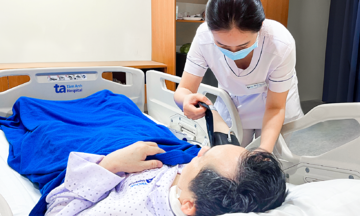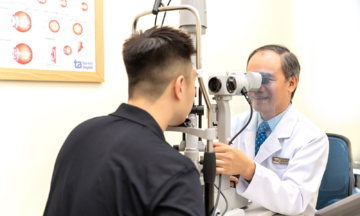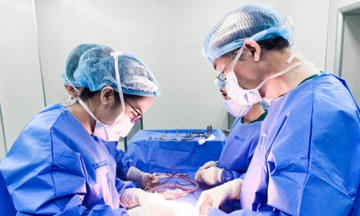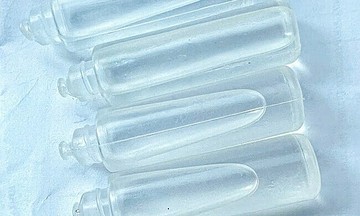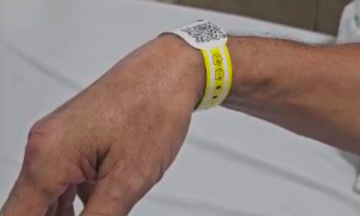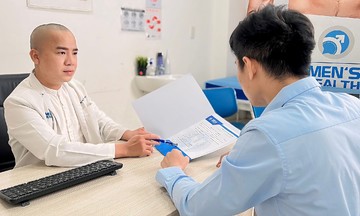At Gia An 115 Hospital, 97-year-old Ms. Hien was diagnosed with pulmonary edema and heart failure due to fluid overload. Doctors immediately administered diuretics and provided cardiac support. After 20 minutes, her breathing stabilized, but she required several days of treatment for full recovery.
"I've seen many acquaintances receive IV drips whenever they feel unwell, but I never realized it could be so dangerous," Ms. Hien’s daughter said.
Not everyone is as fortunate as Ms. Hien. Last year, a 62-year-old woman in Lao Cai suffered anaphylactic shock after an at-home IV drip. Despite being rushed to the hospital, she died within hours. Previously, a 71-year-old woman in Dak Lak turned purple and collapsed after receiving an IV drip at a private clinic; a 28-year-old woman also passed away after a similar procedure at a general clinic in Ho Chi Minh City.
At-home IV infusions are becoming increasingly common, especially when people experience colds, fevers, or fatigue and want quick relief without going to the hospital. On social media and community groups, searching for "at-home IV drip services" yields numerous results from individuals and private clinics, promising 24/7 availability, home visits, and flexible pricing based on distance. This convenience leads many to overlook the potential risks, resulting in dangerous complications.
Dr. Dam Quang Huan, from the Emergency Department of Gia An 115 Hospital, frequently treats cases of complications from IV infusions. He warned that at-home IV drips typically lack continuous vital sign monitoring with specialized medical equipment and professional medical personnel, posing significant risks to patients’ health and lives.
According to Dr. Huan, the risks of unsupervised at-home IV drips include anaphylactic shock, which can be fatal within minutes without immediate intervention. Uncontrolled infusions can also lead to fluid overload in the bloodstream, causing pulmonary edema and heart failure due to rapid or unnecessary infusions. Electrolyte imbalances and cardiac arrhythmias can also occur. Infections at the injection site and sepsis are also potential risks due to the lack of sterile conditions.
"Not all patients require IV drips. An IV drip can save a life, but it can also take one if used incorrectly," Dr. Huan explained.
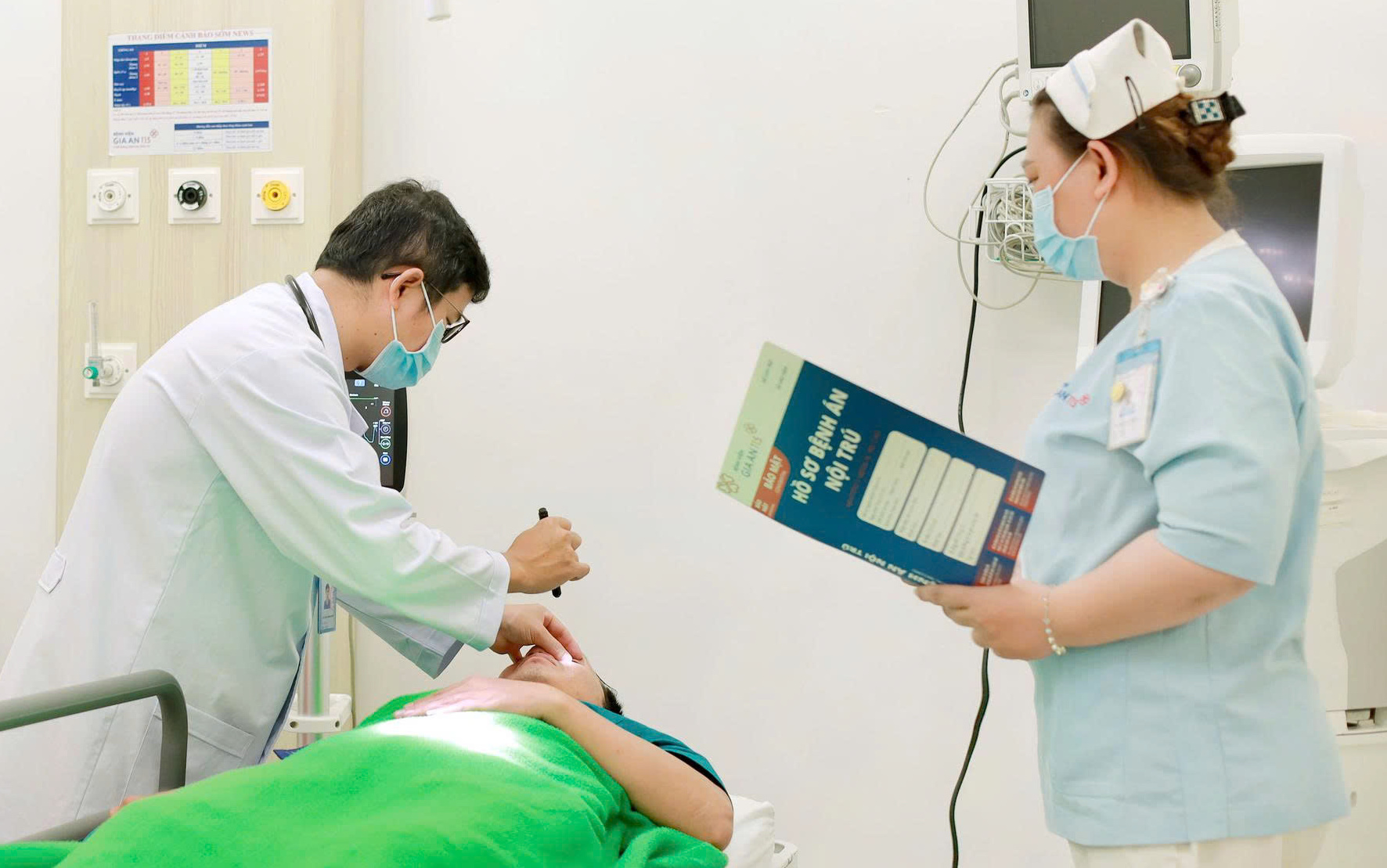 |
Dr. Huan examining a patient. Photo: Hospital provided |
Dr. Huan examining a patient. Photo: Hospital provided
Dr. Pham Thai Ngoc Long from the Emergency Department of 175 Military Hospital emphasized that IV drips are not a "miracle cure" for revitalization, as many mistakenly believe. Any medical intervention requires examination and evaluation by a specialist before implementation, as all medications and infusions have the potential to directly impact health.
"No medication provides instant recovery, let alone a simple IV drip," Dr. Long analyzed, adding that self-administering IV drips at home for "revitalization" is akin to gambling with one's life. Without monitoring equipment and emergency resources, even minor errors can have severe consequences.
Furthermore, many individuals believe that an IV drip will provide a quick fix, leading them to forgo medical consultations while their underlying conditions may be worsening. This habit not only exacerbates their illness but also delays crucial treatment, especially when complications arise at home where emergency resources are limited.
According to Dr. Long, IV infusions are a crucial medical procedure in emergencies, but they are only safe when administered by trained medical personnel in medical facilities equipped with monitoring equipment and emergency medications. The type of fluid, infusion rate, and dosage must be determined by a doctor based on each patient's specific condition.
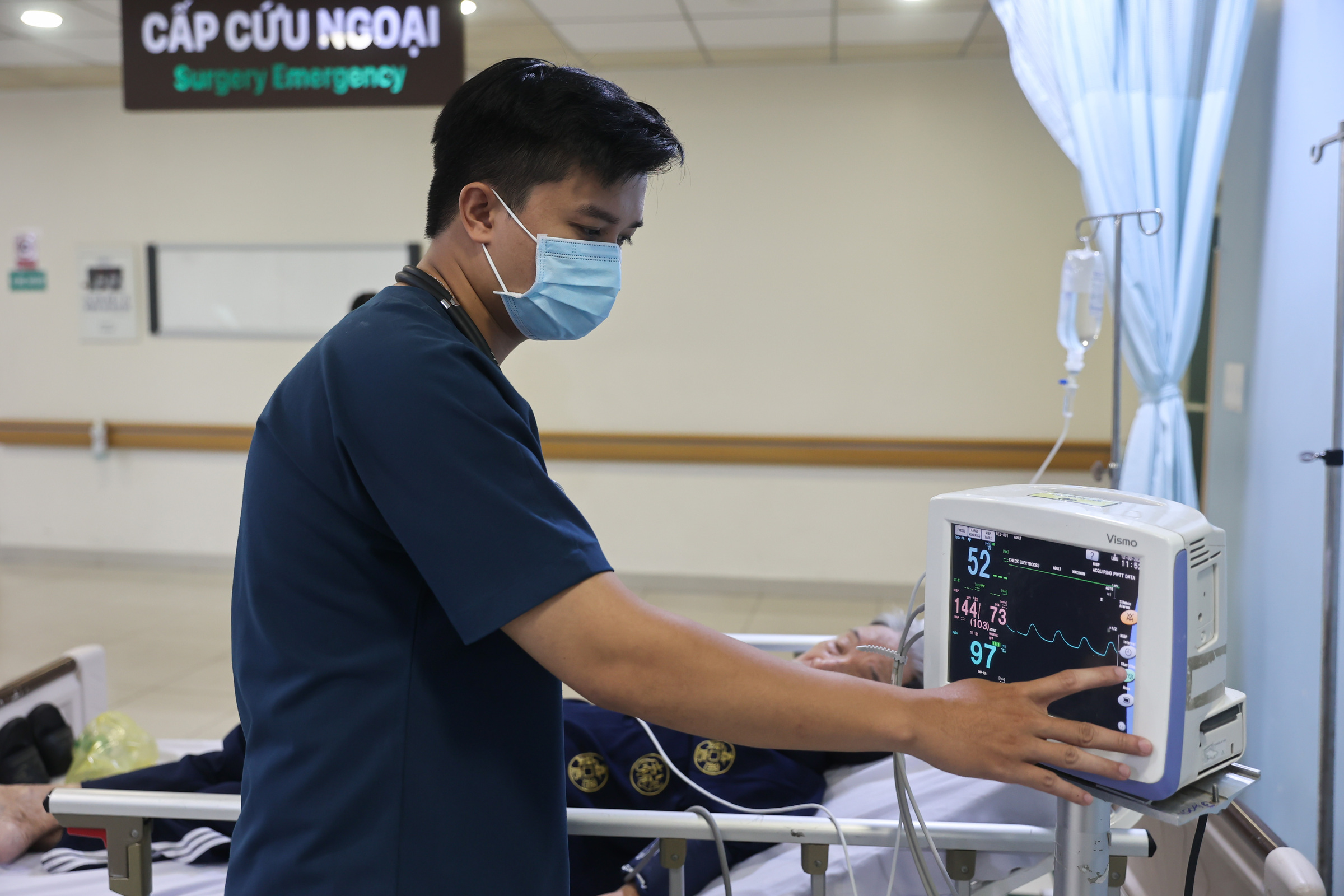 |
IV infusions should be administered in medical facilities with appropriate monitoring equipment and emergency medications, under a doctor's supervision. Photo: Quynh Tran |
IV infusions should be administered in medical facilities with appropriate monitoring equipment and emergency medications, under a doctor's supervision. Photo: Quynh Tran
Doctors advise against self-treating with IV drips at medical facilities, pharmacies, or at home without prior examination, testing, and diagnosis by a physician. If experiencing weakness or loss of appetite, individuals should review their diet, rest, work, and exercise routines. If able to eat, they should focus on consuming protein-rich foods like meat, fish, eggs, and dairy products. During an IV infusion, any unusual symptoms such as chills, shortness of breath, or swelling at the injection site should be immediately reported to medical personnel to prevent further complications.
Le Phuong



